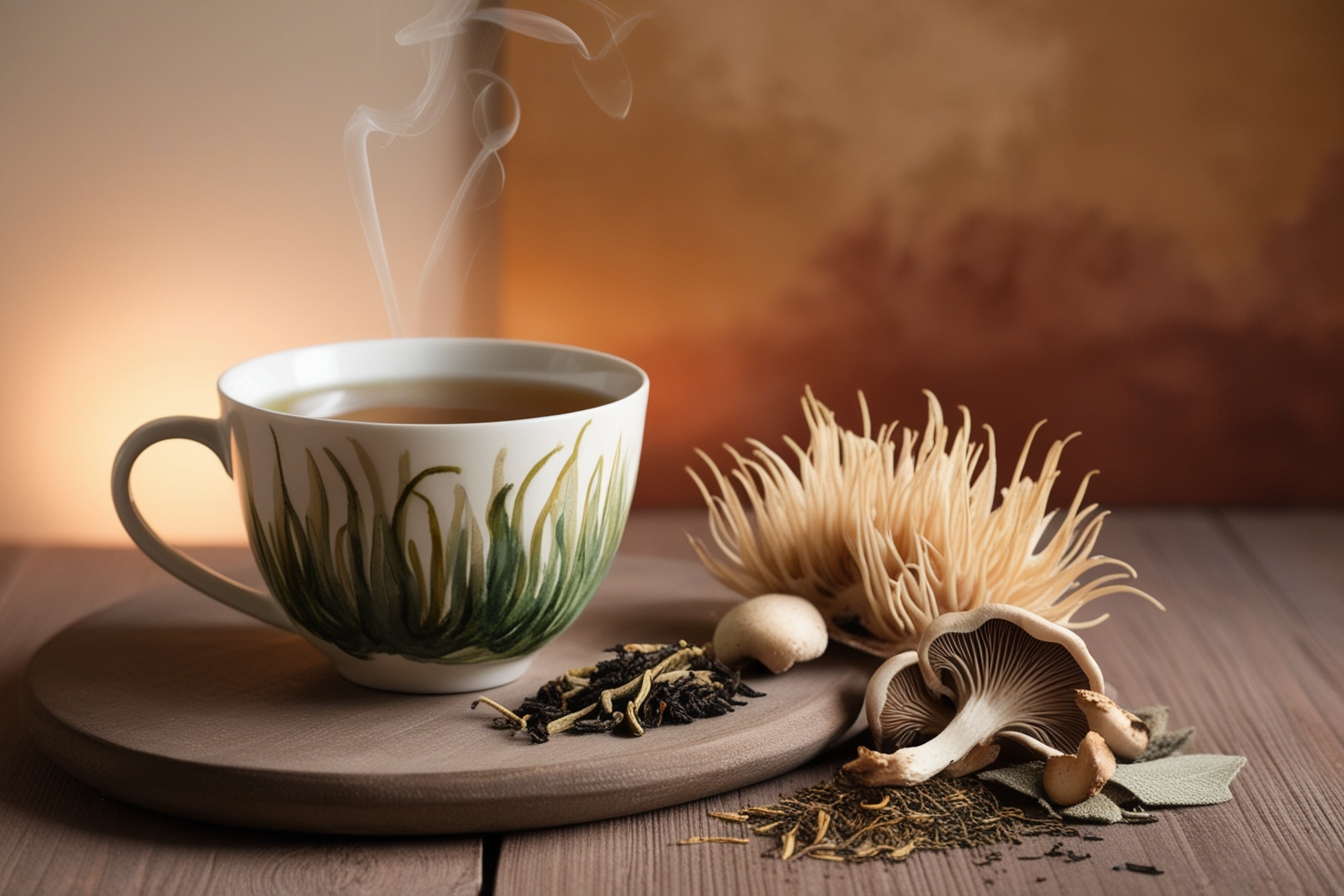TABLE OF CONTENTS:
- What is Lion’s Mane Mushroom Tea?
- Health Benefits of Lion’s Mane Mushroom Tea
- How to Prepare Lion’s Mane Mushroom Tea
- Potential Side Effects of Lion’s Mane Mushroom Tea
- Recent Recipes
- Frequently Asked Questions (FAQs)
- Conclusion
What Are the Benefits of Lion’s Mane Mushroom Tea?
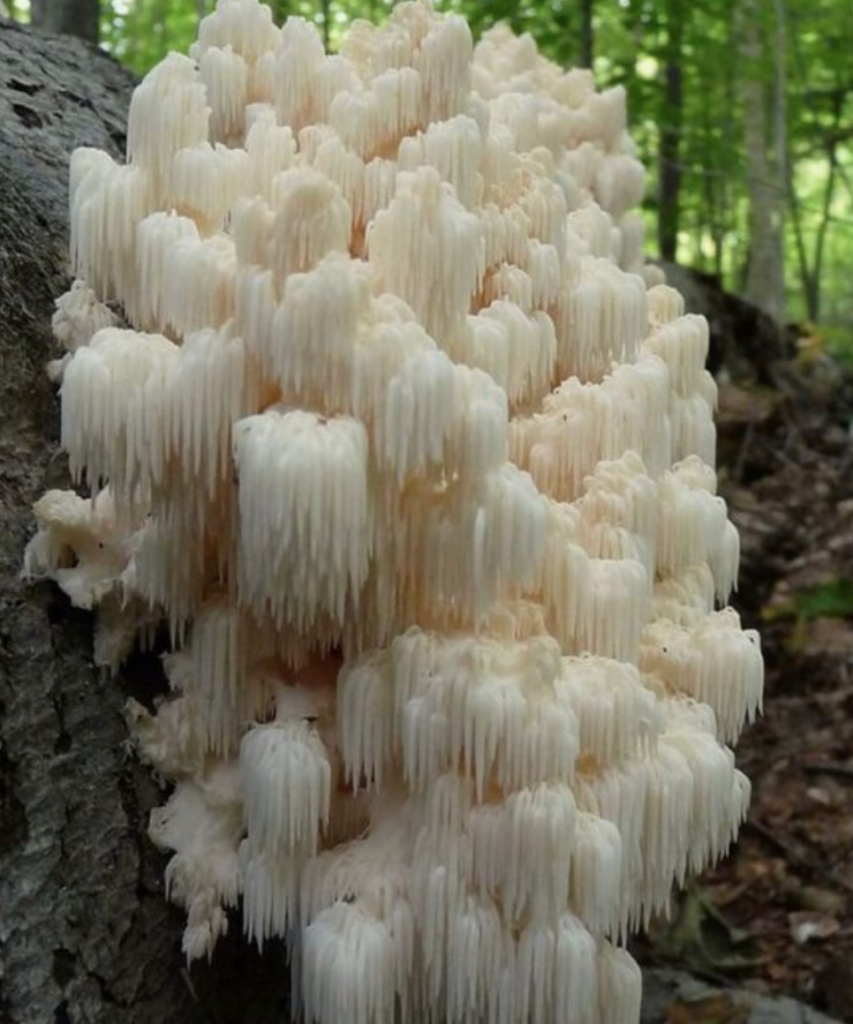
Lion’s Mane mushrooms (Hericium erinaceus) have become a popular choice for both culinary and medicinal use, particularly in the form of Lion’s Mane mushroom tea. Known for their cognitive-boosting properties and other health benefits, this unique mushroom has been studied extensively for its potential to improve brain health, reduce inflammation, and support overall well-being. This article will explore the many health benefits of Lion’s Mane mushroom tea, its preparation, and what science says about its effects.
What is Lion’s Mane Mushroom Tea?
Lion’s Mane mushroom tea is made by steeping dried or powdered Lion’s Mane mushrooms in hot water, releasing the bioactive compounds that are beneficial to health. The mushroom gets its name from its appearance, which resembles the mane of a lion with long, white, shaggy spines.
How is it Made?
- To make Lion’s Mane mushroom tea, simply add 1-2 teaspoons of Lion’s Mane mushroom powder to hot water and let it steep for about 10 minutes. You can also add natural sweeteners like honey or cinnamon for taste.
Health Benefits of Lion’s Mane Mushroom Tea
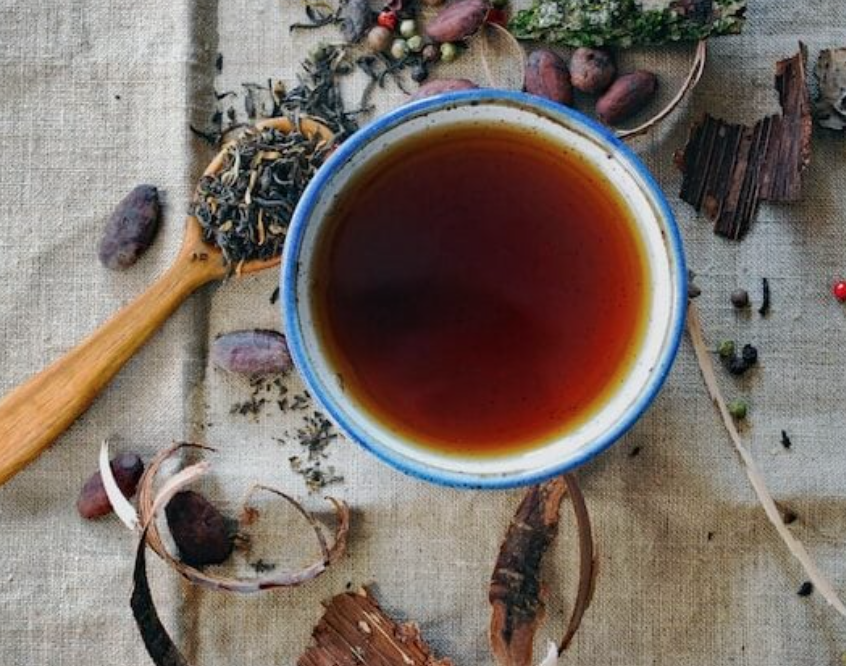
1. Boosts Cognitive Health and Memory
One of the most celebrated benefits of Lion’s Mane mushroom tea is its ability to improve brain function and memory. This is largely due to two compounds found in the mushroom: hericenones and erinacines. These compounds stimulate the growth of brain cells and support the production of nerve growth factor (NGF), a protein essential for maintaining the health and function of neurons.
- Research: Animal studies suggest that Lion’s Mane mushrooms can help protect against Alzheimer’s disease and improve memory function. In a 2020 study, participants with mild Alzheimer’s symptoms experienced significant cognitive improvements after consuming 1 gram of Lion’s Mane per day for 49 weeks.
Learn more about how Lion’s Mane can protect against dementia.
2. Reduces Anxiety and Depression
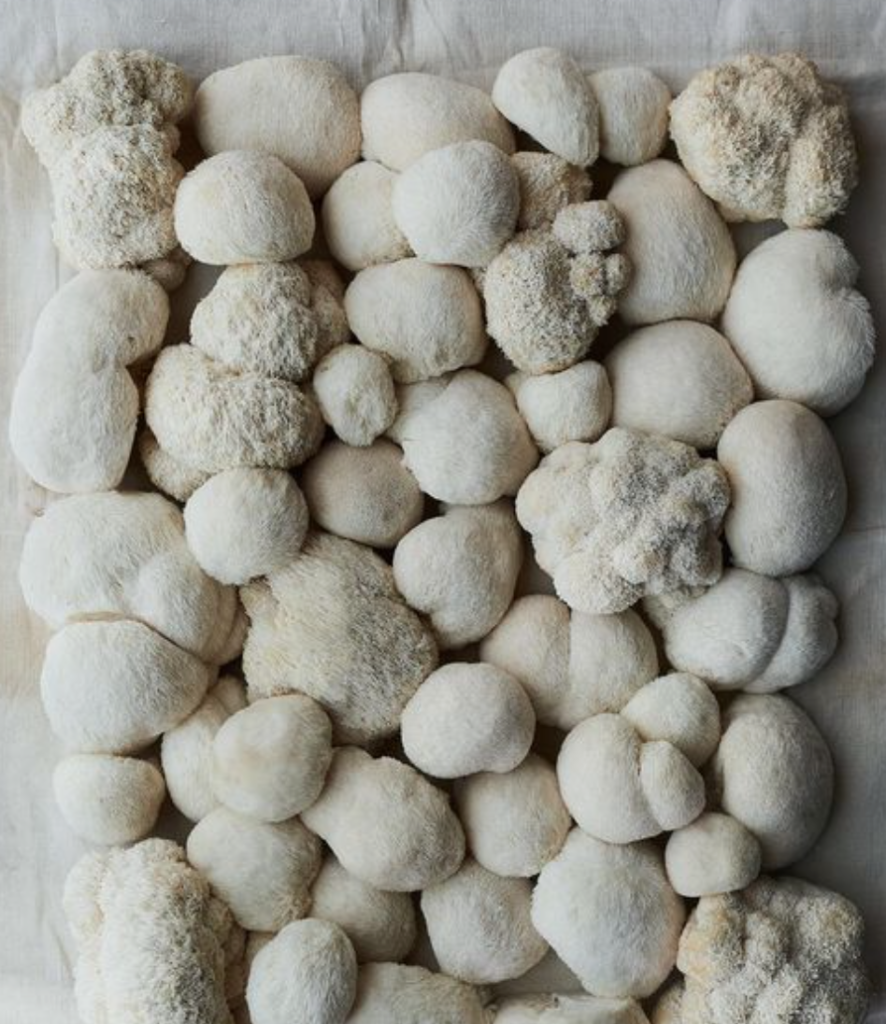
Chronic inflammation is a known contributor to mental health issues like anxiety and depression. Studies show that Lion’s Mane mushroom may help alleviate these symptoms by reducing inflammation and promoting brain cell regeneration, particularly in the hippocampus, which plays a key role in emotional regulation.
- Research: A small study conducted on menopausal women found that eating cookies containing Lion’s Mane mushrooms daily for a month reduced symptoms of anxiety and depression.
Discover more about foods that reduce symptoms of anxiety.
3. Supports Nervous System Recovery
The nervous system consists of the brain, spinal cord, and nerves throughout the body. Injuries to the nervous system, such as spinal cord damage, can have severe consequences. Research suggests that Lion’s Mane mushroom can stimulate the growth and repair of nerve cells, which may speed up recovery from nervous system injuries.
- Study Insight: Animal research has shown that consuming Lion’s Mane mushroom extract can enhance the growth of neurons and support recovery after brain or spinal cord injuries.
4. Improves Heart Health
Consuming Lion’s Mane mushroom tea may help lower the risk of heart disease by reducing triglycerides and preventing the oxidation of cholesterol in the bloodstream. Oxidized cholesterol is known to attach to artery walls, leading to hardened arteries and increasing the risk of heart attacks or strokes.
- Lion’s Mane contains hericenone B, a compound that helps reduce the rate of blood clotting, further protecting the heart.
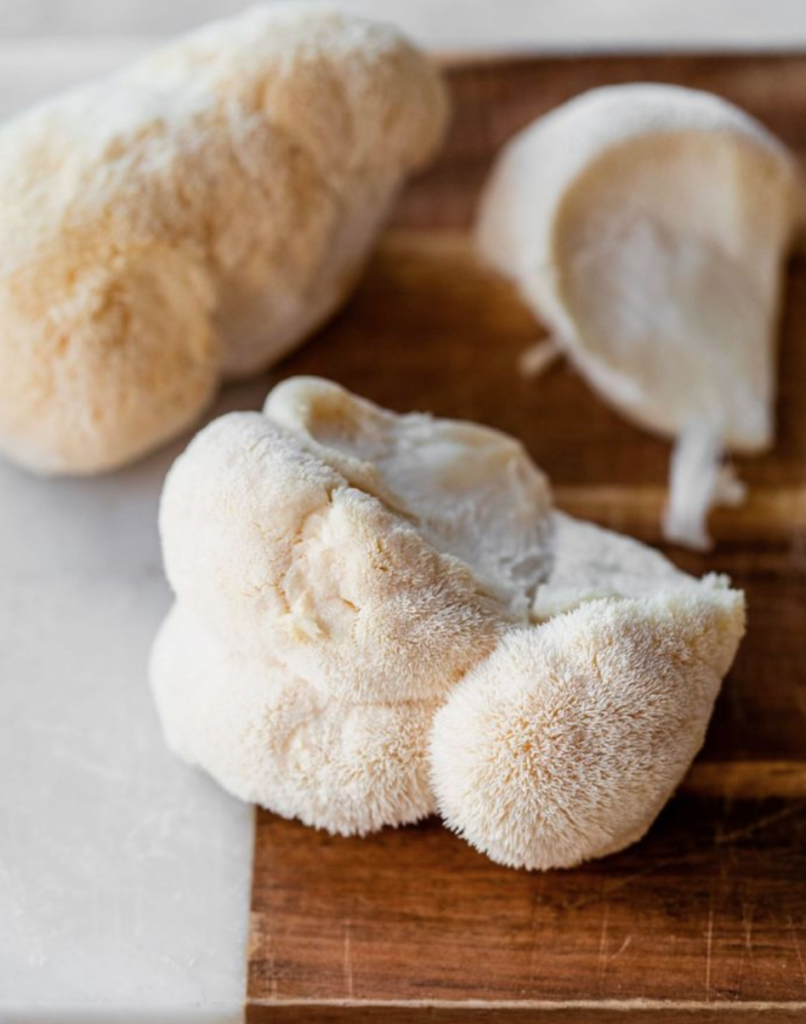
5. Regulates Blood Sugar Levels
Research suggests that Lion’s Mane mushrooms may help regulate blood sugar levels, making it beneficial for individuals with diabetes or those at risk. Lion’s Mane inhibits the enzyme alpha-glucosidase, which is responsible for breaking down carbohydrates in the small intestine. This helps prevent spikes in blood sugar levels after meals.
- In animal studies, mice with diabetic nerve damage showed improved blood sugar management and reduced symptoms after consuming Lion’s Mane mushroom extract.
6. Reduces Inflammation and Oxidative Stress
Chronic inflammation is a significant factor in many health conditions, from heart disease to cancer. Lion’s Mane mushrooms contain powerful antioxidants that help reduce oxidative stress and inflammation in the body. A 2012 study ranked Lion’s Mane among the top mushrooms for its high antioxidant activity.
- Lion’s Mane has also been shown to reduce the inflammatory effects of fat tissue, potentially lowering the risk of obesity-related diseases.
7. May Protect Against Stomach Ulcers
Lion’s Mane mushroom tea may protect the digestive system by inhibiting the growth of H. pylori, the bacteria responsible for many stomach ulcers. It also helps protect the stomach lining from damage caused by long-term use of nonsteroidal anti-inflammatory drugs (NSAIDs).
- Study Insight: Animal research has shown that Lion’s Mane extract can prevent alcohol-induced stomach ulcers more effectively than traditional acid-lowering medications.
8. May Help Fight Cancer
Preliminary studies suggest that Lion’s Mane mushroom has cancer-fighting properties. In test-tube studies, Lion’s Mane extract was found to kill cancer cells faster and slow the spread of tumors in mice. However, these findings have yet to be confirmed in human trials.
How to Prepare Lion’s Mane Mushroom Tea

Here’s a simple recipe for making Lion’s Mane mushroom tea:
- Boil 1 cup of water.
- Add 1-2 teaspoons of Lion’s Mane mushroom powder.
- Let it steep for 10 minutes.
- Stir well and add honey or cinnamon to taste.
For an extra health boost, you can blend it with other teas such as ginger or green tea.
Potential Side Effects of Lion’s Mane Mushroom Tea
While Lion’s Mane mushrooms are generally considered safe, it’s important to be aware of potential side effects, especially if you have allergies to mushrooms.
Common Side Effects:
- Digestive Discomfort: Some people may experience mild stomach upset when consuming Lion’s Mane tea.
- Allergic Reactions: If you’re allergic to mushrooms, avoid consuming Lion’s Mane.
Recent Recipes
Frequently Asked Questions (FAQs)
1. Can Lion’s Mane Mushroom Tea Improve Memory?
Yes, Lion’s Mane is known to support memory and cognitive function. The compounds hericenones and erinacines in Lion’s Mane mushrooms stimulate the production of nerve growth factor, which enhances brain function.
2. Can I Drink Lion’s Mane Mushroom Tea Every Day?
Yes, Lion’s Mane mushroom tea can be consumed daily, but it’s best to consult a healthcare provider, especially if you are taking medications or have underlying health conditions.
3. Does Lion’s Mane Mushroom Tea Have Anti-Inflammatory Benefits?
Yes, Lion’s Mane is rich in anti-inflammatory compounds and antioxidants, which can help reduce chronic inflammation and oxidative stress.
Conclusion
Lion’s Mane mushroom tea offers a wide range of health benefits, from boosting cognitive health and memory to supporting the immune system and promoting heart health. With its potential to reduce anxiety, improve digestion, and lower inflammation, Lion’s Mane tea is an excellent addition to your daily routine. However, it’s always wise to consult with a healthcare professional before incorporating new medicinal supplements like Lion’s Mane into your diet.

